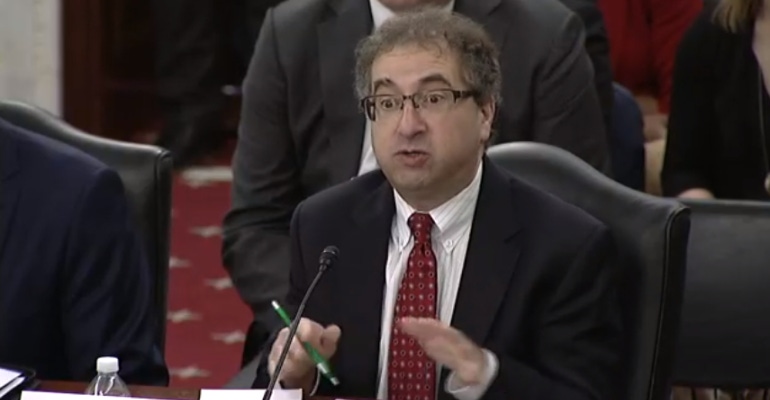Senate Agriculture Committee tackles concerns with USDA’s handling of gene editing in crops and FDA with gene-edited livestock.

In opening comments during a Senate Agriculture Committee hearing on Thursday morning, ranking member Sen. Debbie Stabenow (D., Mich.) said she is concerned that the U.S. Department of Agriculture’s proposed biotechnology rule, published last June, does not provide adequate oversight of the biotech sector.
The proposed rule would allow developers of certain products to determine for themselves whether the regulations apply. Under the proposed rule, a company could make its own determination that its product is exempt from the regulation. That product could then enter the marketplace without any public notification or consumer awareness.
“The hands-off approach proposed by USDA lacks the strong scientific justification that consumers and our trading partners expect,” Stabenow said.
A broad coalition of biotech industry leaders, agribusinesses and consumer advocates agree on this. Just last week, they sent a letter to urge the Office of Management & Budget (OMB) to modify the self-determination provision because they understand the importance of a transparent and consistent regulation.
Greggory Jaffe, biotechnology project director at the Center for Science in the Public Interest (CSPI), testified that USDA’s proposed rule includes several specific exemptions for genome-edited crops without any scientific evidence to support those exemptions. “CSPI does not object to exempting GE [genetically engineered] or genome-edited crops if there is scientific evidence that they do not pose risks to the environment or agricultural interests,” Jaffe said.
He did express concerns that while some developers will diligently determine the regulatory status of their GE plant, others may not. He suggested that USDA institute a simple fix in its final rule that would require companies to submit a determination of whether they believe they should be exempt, and then USDA would make that determination. He said this doesn’t add any additional burden to companies but offers more transparency to consumers and international trading partners on what USDA plans to oversee.
Gene editing in animals
Another major point of concern is the difference in handling of gene editing between USDA and the Food & Drug Administration. Jaffe said CSPI supports FDA oversight of animals with intentionally altered DNA. FDA made a compelling scientific case for such oversight of genome-edited animals, even those with modifications that replicate what has occurred or could occur in nature, he testified, adding, “FDA should establish a proportionate, risk-based regulatory system with different levels of oversight based on a product’s potential risk.”
Jaffe said during questioning that FDA has applied different risk considerations and enforcement discretion on how it handles different animals, including the Glo Fish genetically altered fish because it doesn’t go into the food supply.
“I have confidence that if we give FDA time for the genome-edited animals and the [GE] animals, they will put them in categories such that different products depending on their potential risk get different levels of oversight, different levels of data that are required, different kinds of review and different time for that review. I think FDA wants to use their resources efficiently, and they will, if given time to sort this out,” Jaffe said.
Iowa Pork Producers president Dr. Michael Paustian said the pork industry supports moving oversight of gene-edited livestock on U.S. farms from FDA to USDA. “The FDA has insisted that farmers simply misunderstand its regulatory proposal. This is incorrect. We, along with the scientific and trade communities, have clearly stated our strong objections to FDA’s proposal,” he said.
“The USDA has the authority and expertise available to effectively regulate gene-edited livestock, leaving the FDA to focus its attention and resources on other exciting biomedical applications under development,” Paustian testified.
This shift from FDA to USDA will remove many of the obstacles that FDA's current approach is placing on the development of gene editing and similar technologies in livestock agriculture. It will allow research and development of these technologies to take place at American universities rather than overseas, let farmers adopt these new breeding techniques without the fear of losing access to international markets and demonstrate to the world that the U.S. is committed to a pro-innovation, risk-based approach to new technology, not a precautionary one.
USDA already has a review process in place for genetic editing in plants under its Animal & Plant Health Inspection Service, which can easily be adopted for livestock, Paustian noted. "This approach will allow U.S. agriculture to maintain its global edge. We ask you to support moving oversight of gene-edited livestock on American farms from the FDA to the USDA," he concluded.
About the Author(s)
You May Also Like



.png?width=300&auto=webp&quality=80&disable=upscale)

